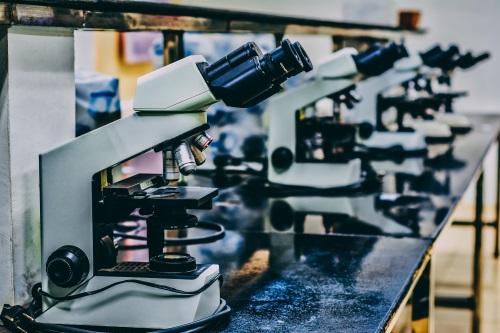Scottish Brain Health Bioresource
The Scottish Brain Health Bioresource has brought together data and samples from three Alzheimer's disease studies and made these available to researchers across the globe
The Scottish Brain Health Bioresource (SBHB) based at the University of Edinburgh’s Roslin Institute now curates all the samples collected over three pioneering Alzheimer’s prevention studies.

The four-year longitudinal European Prevention of Alzheimer’s Dementia (EPAD) study, the ongoing PREVENT Dementia study, and the recently launched EPAD Scotland study have collected more than 180,000 samples to date. We have blood, cerebral spinal fluid, saliva and urine samples. All information is held on a dedicated database giving full traceability for each sample from collection to storage, and links to all the additional information collected for the participants over the course of the study.
EPAD collected samples at 31 European study sites between 2016 and 2020 from more than 2,000 participants at risk of developing Alzheimer’s Disease (AD). We have samples from participants taken over 4 years making it one of the largest longitudinal cohort studies into Alzheimer’s and brain health currently held which makes this collection invaluable to researchers. The PREVENT Dementia study recently enrolled its 700th participant and examines biomarker status at mid-life for a cohort identified as at risk of developing late-onset AD based on family history and APOE status (a well-known risk gene for AD). PREVENT has study sites in London, Edinburgh, Dublin, Cambridge, and Oxford, and has recently secured new funding to add a sports player cohort to the study. The EPAD Scotland study was launched last month in Edinburgh and will collect samples across several Scottish study sites from participants at risk of developing AD who were previously enrolled in either EPAD or another cohort CHARIOT-PRO.
Researchers can contact principal investigator Professor Jean Manson through the EPAD website for more information on how to access samples from all three studies. We work in tandem with the Alzheimer’s Disease Data Interoperability platform for all formal data and sample access request.
SBH Bioresource samples have recently been sent to a number of collaborators including Alchemab Therapeutics Ltd and Hummingbird Diagnostics in Germany, with further collections currently being prepared for the Broad Institute in Boston, USA, and for a research group in a large European inter-university collaboration. We are involved in both academic and commercial collaborations and the results from these partnerships will all be returned to the EPAD database where they will be readily available to researchers.
Initial results from research based on the SBH Bioresource samples will be announced soon on the EPAD website.


